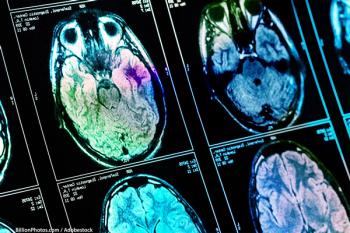
Core Set of Symptoms Highlighted for Brain Tumor Patients
A core set of symptoms are common across brain tumor patients and underscore the complexity of brain tumors and their management.
A core set of symptoms are common across brain tumor patients, and while many of those symptoms are similar to those in other solid tumors, the specific differences underscore the complexity of brain tumors and their management, according to a new study presented at the Society for Neuro-Oncology Annual Scientific Meeting in Miami.
“In general oncology and in patients with other solid tumors, there has been a lot of work in defining a common set of cancer- and treatment-related symptoms to enhance the quality of care and clinical research,” said Terri Armstrong, PhD, of the University of Texas MD Anderson Cancer Center in Houston. Much of that effort to define symptoms came as a result of recommendations from the Institute of Medicine and the American Society of Clinical Oncology.
“If we have a systematic assessment of a core set of symptoms across cancers, this will facilitate comparative effectiveness research, increase our understanding of the impact of cancer on a patient’s life, and enhance… our ability to do integrated data analysis and meta-analysis,” Armstrong said.
The new study aggregated symptom report data from 621 patients enrolled across four clinical trials. The cohort was mostly male (59%) and predominantly white (83%). Patients were relatively evenly divided between those newly diagnosed (28%), those on treatment (35%), and those in follow-up care (37%). Most patients had high-grade gliomas, and the largest proportion of patients had grade 4 tumors (49%). Seventy-one percent of patients had a KPS 1 score between 90 and 100.
Over 50% of the full cohort reported at least 10 concurrent symptoms, and 40% reported having at least three moderate to severe symptoms; this was comparable to lung cancer patients in other research. The most prevalent and most severe symptoms were fatigue, drowsiness, difficulty remembering, and difficulty with sleep. These were the most severe symptoms reported by all tumor grades and regardless of treatment status.
Among the list of 10 symptoms in other solid tumors, at least 10% of the brain tumor patients reported those symptoms in all cases except for dyspnea (7%) and nausea (5.2%). Armstrong said that tumor grade did play a role in symptom reporting, with patients with grade 4 tumors or tumor recurrence also reporting weakness and difficulty speaking as among the most severe symptoms. Low performance status was associated with more severe symptoms, and more than 25% of brain tumor patients reported functional interference such as reduced ability to work, walk, and enjoy life.
“Although some symptoms overlap with those reported in patients with other solid tumors, the additional symptoms and functional limitations underscore the clinical complexity of patients with brain tumors,” Armstrong concluded. These results serve to highlight the core set of symptoms common across brain tumor patients that may aid in both treatment and research, she said.
Newsletter
Stay up to date on recent advances in the multidisciplinary approach to cancer.




































